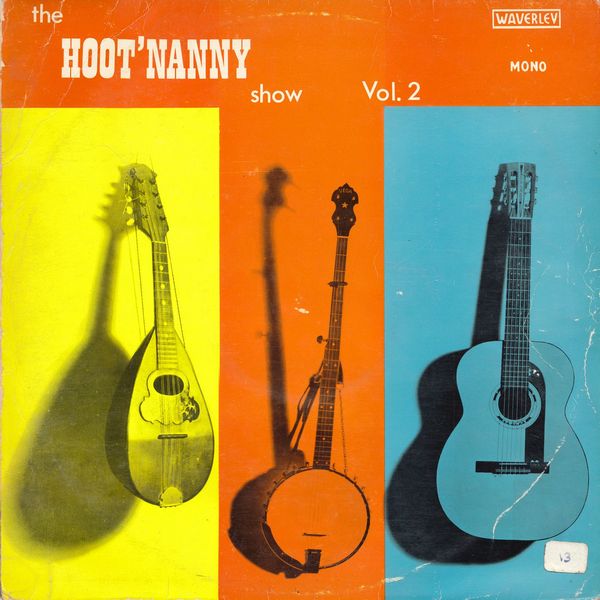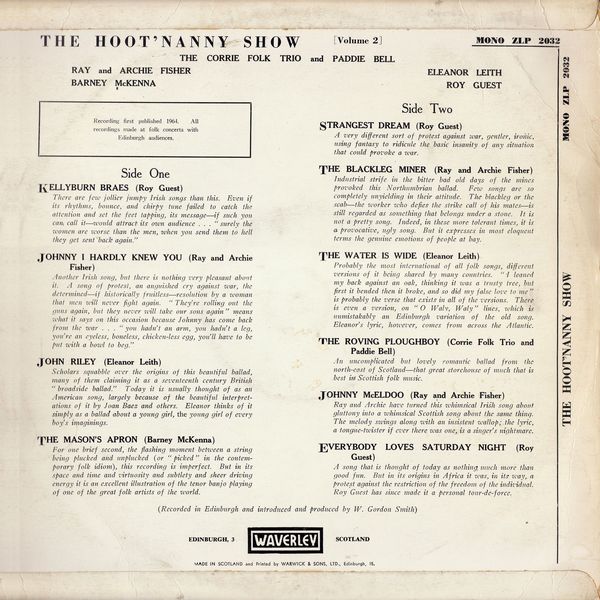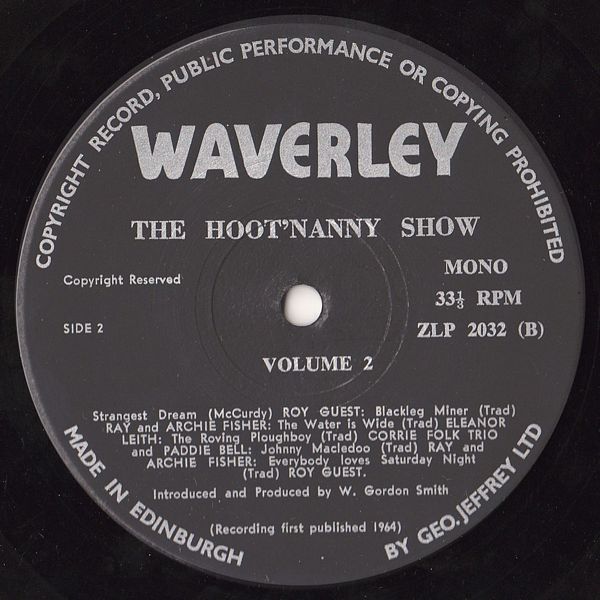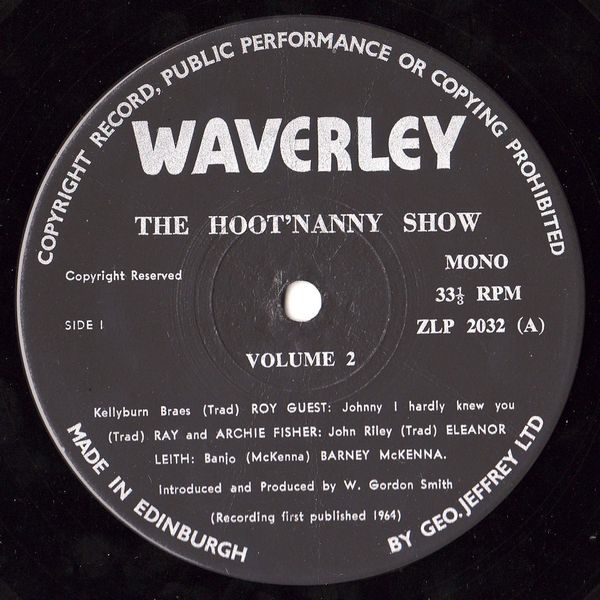
 |


 |
Sleeve Notes
Side One
KELLYBURN BRAES (Roy Guest)
There are few jollier jumpv Irish songs than tins. Even if its rhythms, bounce, and chirpy tune failed to catch the attention and set the feet tapping, its message—if such yon can, call it—could attract its own audience … "surely the women are worse than the men, when you send them to hell they get sent hack again."
JOHNNY I HARDLY KNEW YOU (Ray and Archie Fisher)
Another Irish song, but there is nothing very pleasant about it. A song of protest, an anguished cry against war, the determined—if historically fruitless—resolution by a woman that men will never fight again. "Theyre rolling out the guns again, but they never will take our sons again" means what it says on this occasion because Johnny has come back from the war … "you hadn't an arm, you hadn't a leg, you're an eyeless, boneless, chicken-less egg, you'll have to be put with a bowl to beg."
JOHN RILEY (Eleanor Leith)
Scholars squabble over the origins of this beautiful ballad, many of them claiming it as a seventeenth century British "broadside ballad." Today it is usually thought of as an American song, largely because of the beautiful interpretations of it by Joan Baez and others. Eleanor thinks of it simply as a ballad about a young girl, the young girl of every boy's imaginings.
MASON'S APRON (Barney McKenna)
For one brief second, the flashing moment between a string being plucked and unplucked (or "picked" in the contemporary folk idiom), this recording is imperfect. But in its space and time and virtuosity and subtlety and sheer driving energy it is an excellent illustration of the tenor banjo playing of one of the great folk artists of the world.
Side Two
STRANGEST DREAM (Roy Guest)
A very different sort of protest against war, gentler, ironic, using fantasy to ridicule the basic insanity of any situation that could provoke a war.
BLACKLEG MINER (Ray and Archie Fisher)
Industrial strife in the bitter bad old days of the mines provoked this Northumbrian ballad. Few songs are so completely unyielding in their attitude. The blackleg or the scab—the worker who defies the strike call of his mates—is still regarded as something that belongs under a stone. It is not a pretty song. Indeed, in these more tolerant times, it is a provocative, ugly song. But it expresses in most eloquent terms the genuine emotions of people at bay.
WATER IS WIDE (Eleanor Leith)
Probably the most international of all folk songs, different versions of it being shared by many countries, "I leaned my back against an oak, thinking it was a trusty tree, but first it bended then it broke, and so did my false love to me" is probably the verse that exists in all of the versions. There is even a version, on "O Waly, Waly" lines, which is unmistakably an Edinburgh variation of the old song. Eleanor's lyric, however, comes from across the Atlantic.
THE ROVING PLOUGHBOY (Corrie Folk Trio and Paddie Bell)
An uncomplicated but lovely romantic ballad from the north-cost of Scotland—that great storehouse of much that is best in Scottish folk music.
JOHNNY McELDOO (Ray and Archie Fisher)
Rav and Archie have turned this whimsical Irish song about gluttony into a whimsical Scottish song about the same thing. The melody swings along with an insistent wallop; the lyric, a tongue-twister if ever there was one, is a singer's nightmare.
EVERYBODY LOVES SATURDAY NIGHT (Roy Guest)
A song that is thought of today as nothing, much more than good fun. But in its origins in Africa it was, in its- way, a protest against the restriction of the freedom of the individual. Roy Guest has since made it a personal tour-de-force.